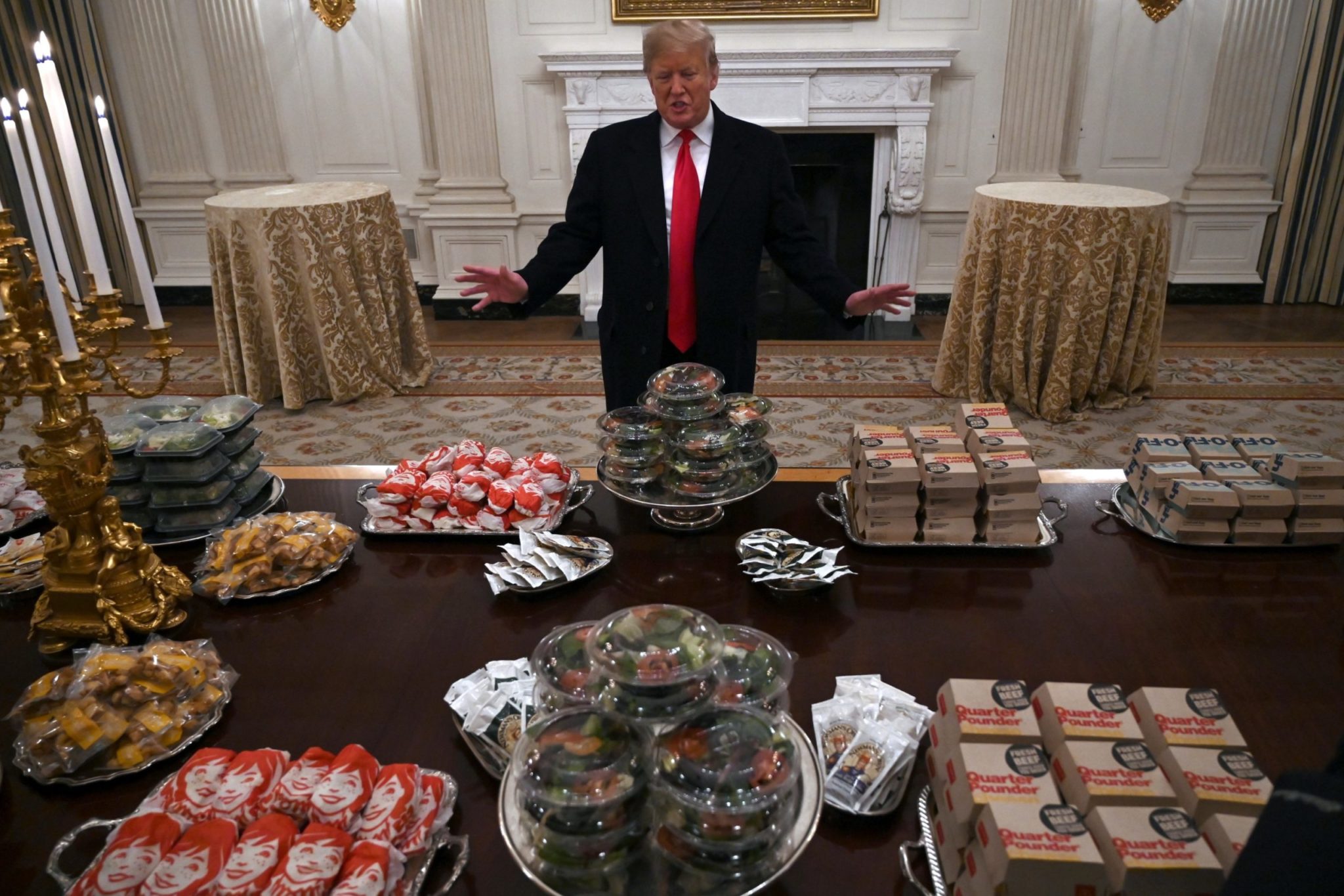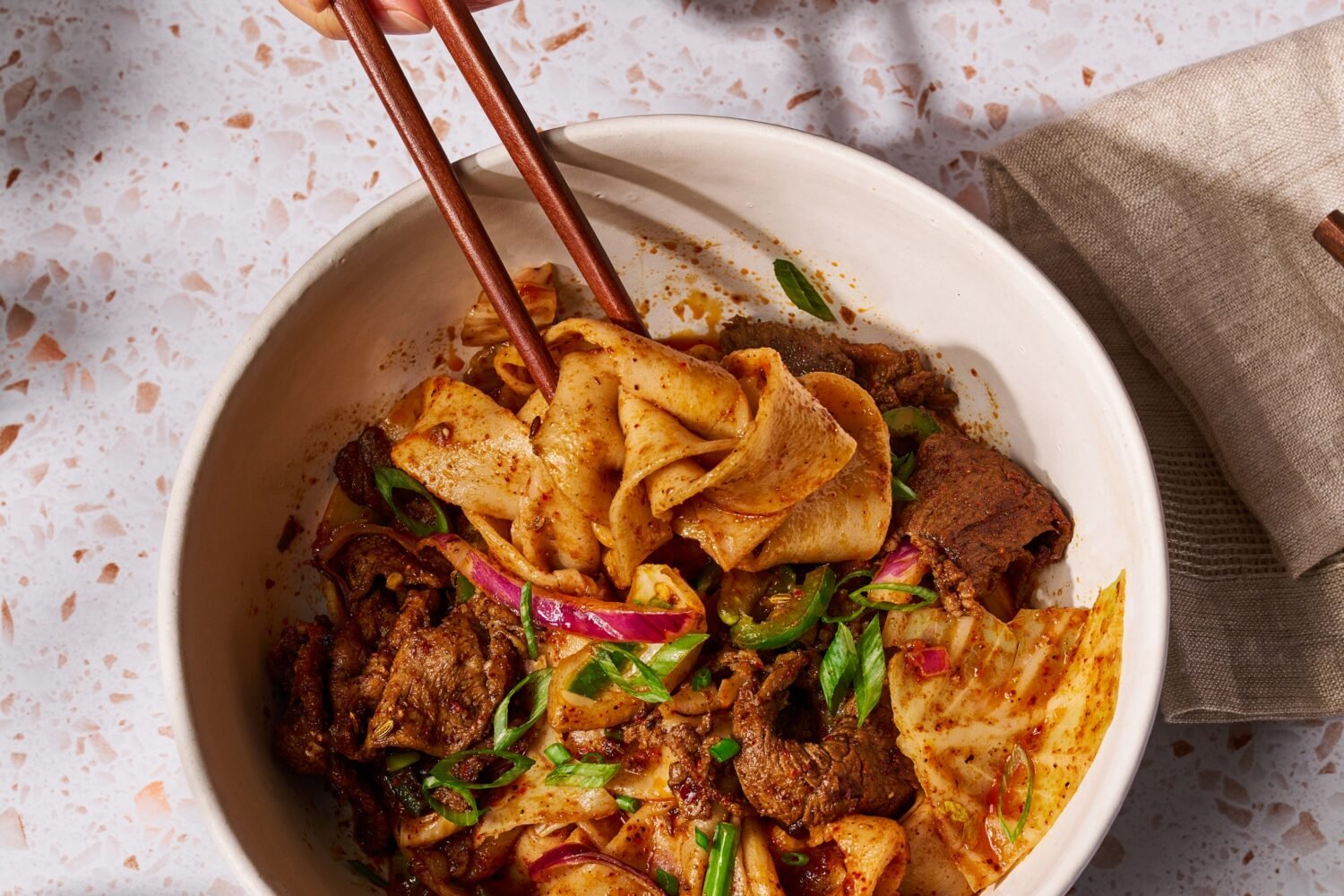President Donald Trump served a fast food feast of McDonald’s, Wendy’s, Burger King, and Domino’s to Clemson’s champion football team at the White House last night. Whatever your feelings on the Big Mac, the dinner choice may have seemed like a missed opportunity to show off a DC’s independent pizzerias and burger joints. In theory, we want a president who celebrates small local businesses. In theory, we want a president who feels like a member of our community. Wouldn’t it be nice if Trump, like Barack Obama, appreciated a Ben’s half-smoke or a Good Stuff Eatery patty?
In fact, Trump would have only created a PR disaster for a local business. A global chain is too big to blame. But the second a small local restaurant feeds the White House, the owners would be placed in an impossible position no matter what they said. There is no response that would completely ward off an angry mob.
Let’s say, hypothetically, the restaurant takes an anti-Trump stance. Maybe the owners say they didn’t know where the burgers were headed. Maybe they say they wouldn’t have sold them if they did. Maybe they offer—as Buttercream Bakeshop did after making a cake for Trump’s inauguration—to donate profits from the purchase to the Human Rights Campaign (or Planned Parenthood or the American Immigration Council).
Most locals in liberal DC would undoubtedly love it and rally support for the business. But that wouldn’t stop hordes of Trump supporters from attacking the restaurant. The restaurant’s Twitter and Facebook pages would be flooded with nasty comments, and its Yelp page would become an “active cleanup” site. Staff would receive death threats, forcing the restaurant to get in touch with law enforcement. It would take weeks, or longer, for everything to return to normal. After all, that’s exactly what happened to the Red Hen in Lexington, Va., after it refused service to Press Secretary Sarah Sanders—and also to DC’s Red Hen, which had absolutely nothing to do with any of it other than a shared name.
Now let’s say the restaurant, as is most likely the case, tries to stay neutral. The owners make a point to say they serve everyone, as they always have. They say they’re totally apolitical. Seems like a safe response, right? Maybe in another, less divisive time. Now, neutrality is often seen as complicity. A contingent of anti-Trumpers would demand more. They’d want the restaurant to take a stand, to speak out, to donate their profits. They’d threaten a boycott and attempt to shame the business on social media.
Just look at that happened with Taylor Gourmet. After owner Casey Patten attended a small business roundtable at the White House, the hoagie chain faced massive backlash. Never mind that Patten had also met with Obama or emphasized the business’s non-partisanship with a “Less Politics, More Hoagies” campaign. As one insider told Washingtonian, sales dropped 40 percent the next day, and the meeting contributed to Taylor’s ultimate demise. Whether that’s an exaggeration or not, there’s no doubt the brush with Trump created a PR nightmare.
Sadly, it’s a lose-lose situation. So if the president wants to indulge in a pile of Whoppers? Let’s hope he likes them enough to reorder them the next time.
















